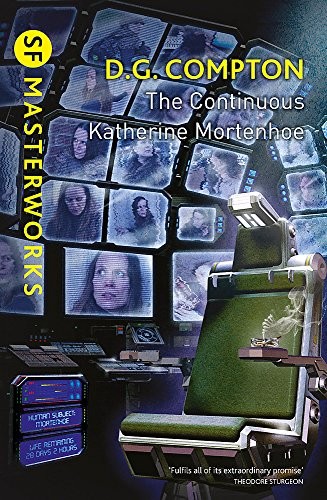The Continuous Katherine Mortenhoe
4 stars
A novel from the 1970s (unwittingly) about the 2010s. Our titular character attempts an escape from the camera of the TV show chronicling her life. Low plot and high concept. Took me several sittings go get through, not due to length or writing style, but rather how sparse the plot is. I love the way Compton doles out information to the reader; it never feels rushed or overbearing.
Compton alternates the perspective between Katherine and the show producer, Roddie. We get separate takes on a lot of the same events, in immediate succession, and it becomes a great device for Compton to explore the impact of events on the producer. It's no accident that Roddie has to undergo an irreversible, shocking change in order to properly 'see' his subject.
Impostorhood is a huge motif - being one, the realization of such, and its rationalization. The leads adopt disguises to be …
A novel from the 1970s (unwittingly) about the 2010s. Our titular character attempts an escape from the camera of the TV show chronicling her life. Low plot and high concept. Took me several sittings go get through, not due to length or writing style, but rather how sparse the plot is. I love the way Compton doles out information to the reader; it never feels rushed or overbearing.
Compton alternates the perspective between Katherine and the show producer, Roddie. We get separate takes on a lot of the same events, in immediate succession, and it becomes a great device for Compton to explore the impact of events on the producer. It's no accident that Roddie has to undergo an irreversible, shocking change in order to properly 'see' his subject.
Impostorhood is a huge motif - being one, the realization of such, and its rationalization. The leads adopt disguises to be mistaken for an underclass. They gatecrash a private gathering. There's an unholy alliance between the media apparatus and the state that's regularly implied throughout - in almost all cases in the novel, you cannot help but be aware that police business is effectively aligned with the interests of the TV network behind the program. Even the medical field winds up playing handmaiden to the network's interests.
It makes a great comparison work to The Truman Show (dir. Peter Weir), and a good companion to Neil Postman's ideas on television.

